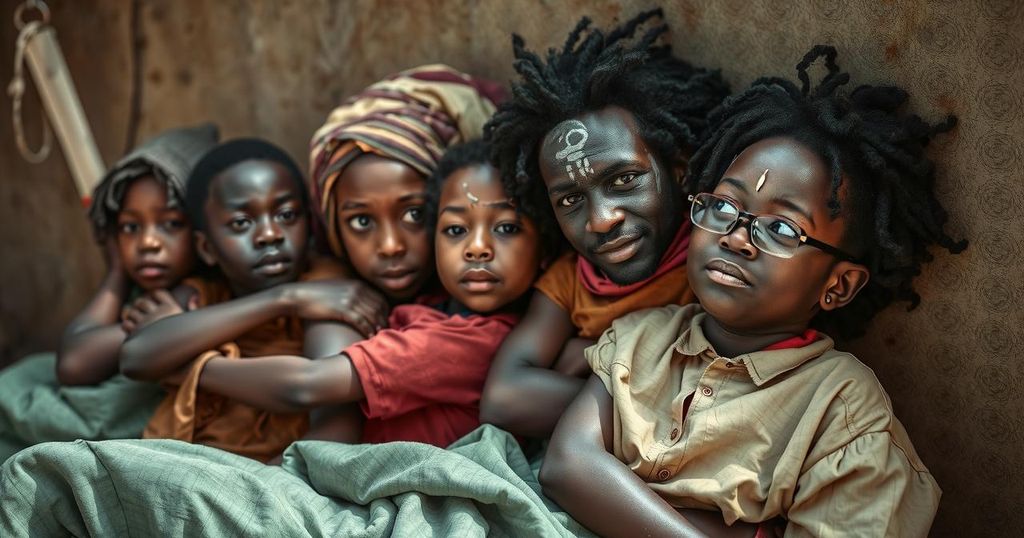Rescue of 26 Ethiopians Uncovers Human Trafficking Crisis in South Africa
South African police rescued 26 Ethiopians from a suspected human trafficking situation in Johannesburg, where they were confined and found naked. Three suspects were arrested, and 11 victims required medical attention. This incident highlights ongoing issues of xenophobia and the treatment of migrants in South Africa, which has seen a significant influx of foreign individuals in recent decades. Language barriers complicate investigations into their plight and origins.
In a startling incident in Johannesburg, South African police rescued 26 Ethiopians from a suspected human trafficking situation after the individuals escaped from a residence where they had been held captive in a state of undress. The rescue unfolded when the group managed to break a window and pry off burglar bars to flee the house, prompting neighbors to alert authorities. Three suspects have been apprehended in connection to the alleged trafficking operation and for possession of an illegal firearm.
Authorities reported that approximately 60 Ethiopian men had been confined within the building, leading to numerous medical emergencies, with 11 victims requiring hospitalization for treatment. The investigation revealed distressing evidence of violence, as blood was observed near the escape route, indicating the severity of the conditions within.
Philani Nkwalase, a representative of the police, stated that the circumstances strongly suggest a human trafficking scenario. “The signs that we have is this is a human trafficking matter, because they were actually escaping from that house and they were kept naked, almost as if it’s a modus operandi to keep them humiliated and not trying to escape,” he explained. Meanwhile, a concerning number of Ethiopians involved in the incident remain unaccounted for, while ongoing investigations are underway to determine the full scope of the case.
This incident sheds light on broader trends within South Africa, a country that has become a destination for migrants from across the continent since the end of apartheid. Despite the diversity that immigration brings, the nation grapples with xenophobic sentiments, driven by fears of crime and unemployment associated with migrant populations. Current statistics suggest that approximately 2.4 million foreign-born individuals reside in South Africa, adding complexity to social dynamics.
A previous instance in August 2024 involved the discovery of 82 Ethiopians crowded into a house lacking basic necessities, raising questions about the treatment and conditions faced by migrants. However, officials later clarified that those individuals were undocumented but not victims of trafficking.
Language barriers have hindered police efforts to communicate effectively with the rescued Ethiopians, complicating the investigation further as authorities seek to establish their circumstances, origins, and intentions in South Africa.
The rescue of 26 Ethiopians in Johannesburg is emblematic of a larger crisis regarding human trafficking and the treatment of migrants in South Africa. Despite being seen as a beacon of hope after apartheid, the nation contends with rising xenophobia and increasing scrutiny of migrant communities. The influx of people from various African nations has sparked tension, as perceptions of crime and economic strain associated with immigrants become prevalent. South Africa’s complex immigration landscape is highlighted by the presence of an estimated 2.4 million foreign-born individuals, including a significant number of Ethiopians, which poses challenges for law enforcement and social integration.
The recent rescue of 26 naked Ethiopians from a suspected trafficking operation underscores urgent human rights concerns in South Africa. The ongoing challenges of immigration and xenophobia further complicate the socio-political landscape, revealing a pressing need for comprehensive action to protect vulnerable populations. As investigations continue, the country must navigate the delicate balance between national security and humanitarian compassion.
Original Source: www.theguardian.com




Post Comment